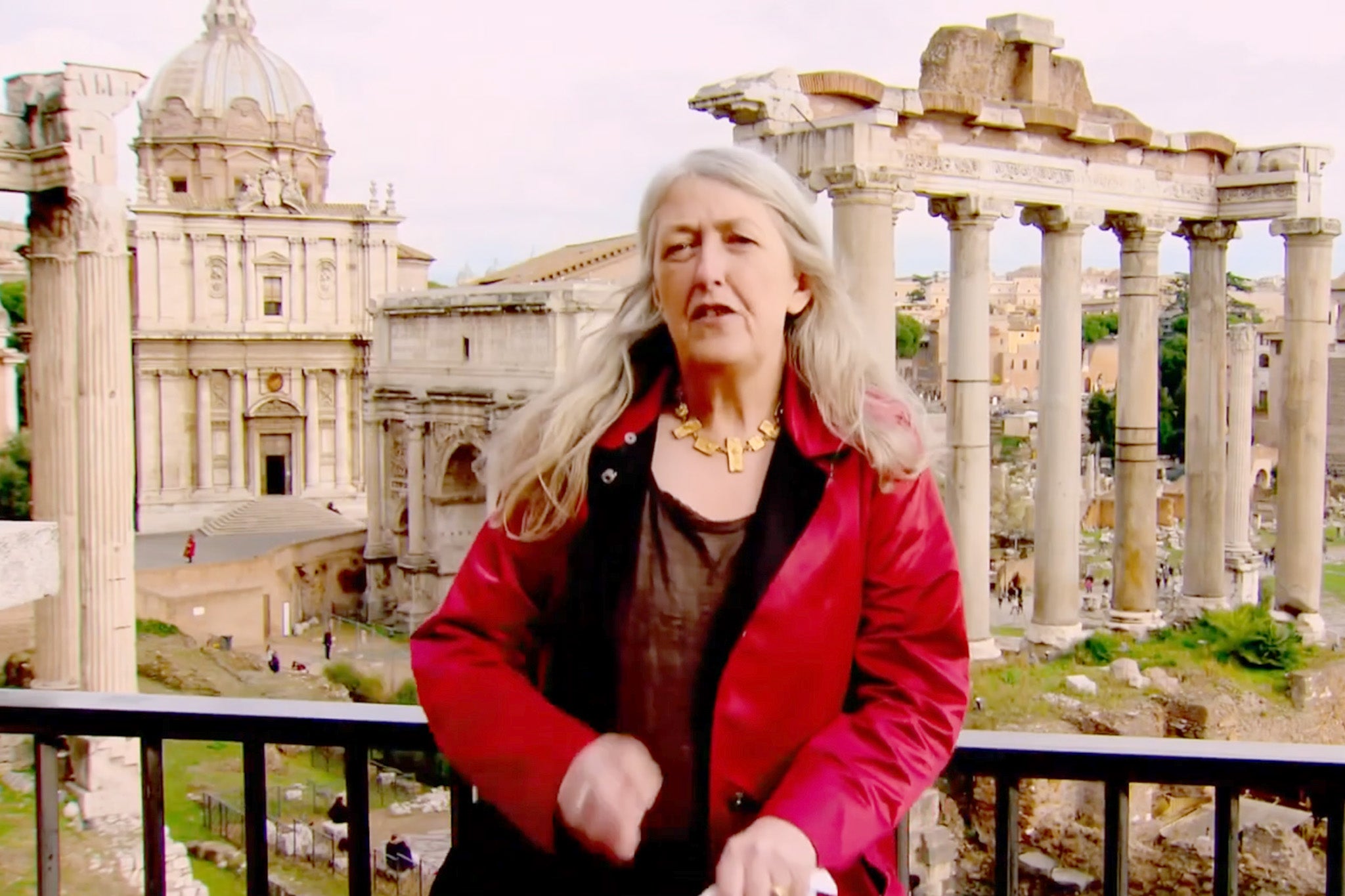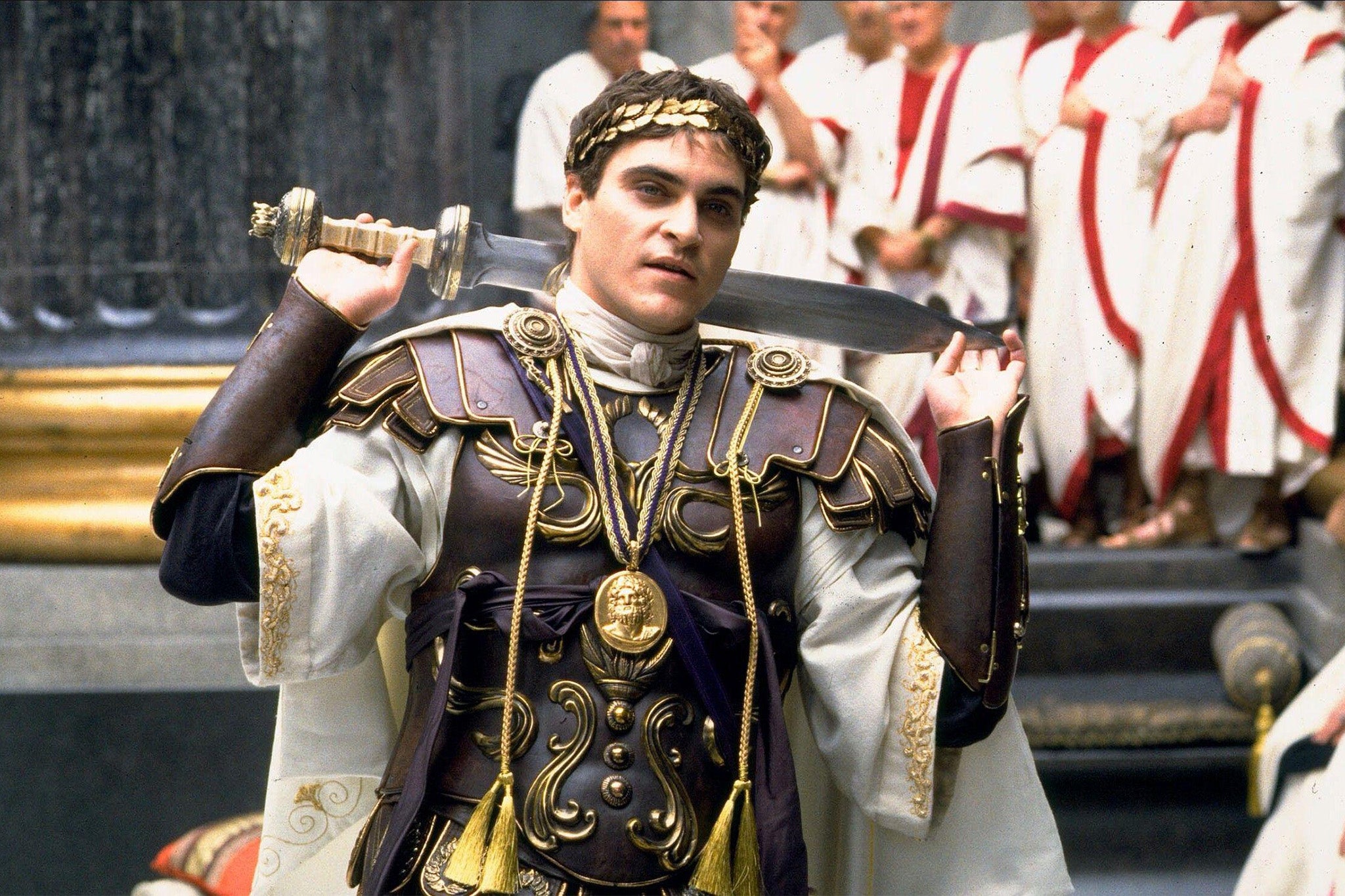Mary Beard: maverick don or book club historian?
Sex, food and bodily functions are the familiar topics on the table in Mary Beard’s bracing new book about ancient Rome. But the fun, chatty and argumentative classics scholar proves both cheering and frustrating in ‘Emperor of Rome’, writes Robert McCrum


I first met Mary Beard in 2008 when she’d begun to attract labels like “maverick”, “dangerous” and “subversive”. A classical scholar and fellow of Newnham College, Cambridge, she was making waves with her blog “A Don’s Life”, and was about to publish a book about Pompeii. When we met to discuss this “life of a Roman town”, it was obvious that Professor Beard was not really dangerous, nor your regular academic, being more than slightly obsessed by the nitty-gritty of the ancient world in ways that made her an ideal pedagogue.
Classical scholarship runs in my family, but I have never encountered a don who so readily confessed to a fascination with Roman sex, and what she declared to be “the sheer puzzlement of it all: where did they go to the loo in the amphitheatre?” Beard – as she called herself – did not stop there. Her life of a Roman town would also introduce its readers to the bawdy graffito scrawled on the walls of a Pompeii bar boasting, “I f***ed the landlady”.
Since 2008, Mary Beard has travelled a long way, becoming both a Dame and a Marmite figure as public intellectual and telly don, merrily landing herself in all kinds of trouble, but never losing her inextinguishable passion for an empire that’s like no other.
Chatty, fun, argumentative, fearless, and ferociously well-informed, Beard’s history presents the Roman world and ours as contiguous, but separate. Emperor of Rome, which follows SPQR, her popular history of the Roman Republic, has all the qualities for which she is known. Refreshingly, there’s no contradiction between educating and entertaining.
From the effusive “Welcome” on her opening page to her rueful, closing concession that this gaudy and spectacular imperial extravaganza may be no more than theatre, Beard has just one mission, to tell us what it was “really like to rule and be ruled in the ancient Roman world”. With many delicious asides about kissing, food-tasting, gardening, valeting, and sex (passim), she has many bawdy answers to Monty Python’s great question “What have the Romans ever done for us?”
History to Beard is a living thing to be anatomised without mercy. ‘Emperor of Rome’ has its author’s character running through it like Roman rock
Forget Gibbon, historian of six-volume The History of the Decline and Fall of the Roman Empire. He’s old school and squeaks into her index with just four citations. Beard’s concerns are ours, from the quotidian to the existential. She will ask what, and where, did the Romans eat? Who did they sleep with? How did they travel? She’ll also interrogate the documents (she’s good with these) that hint at fears of “a strange and unsettling dystopia built on deception and fakery”. Surprisingly, as a consequence of this lens she’s adopted, I think she undercooks two areas of particular fascination: slavery and Roman women.
This is a book conceived and written during our age of dread, the disruption that began in 2016 with Trump and Brexit. Beard is too vivid an educator to miss an opportunity to strike the contemporary chord. From her opening lines, she pitches her emperors as “bywords for excess, cruelty and casual sadism”, and casts the Meditations of Marcus Aurelius as an “international bestseller” better translated as Jottings to Himself.
Her topics are racial diversity, succession dramas, and the dynamics of autocracy, but her style and method aims at the aspirational book group, not the seminar room. Beard’s gift, as a teacher, is to animate the past, shake off its dust, thrust it blinking into the limelight, and make it relatable. History to her is a living thing to be anatomised without mercy. Emperor of Rome has its author’s character running through it like Roman rock.
Character is one theme (who could fail to be gripped by tales of Domitian, Tiberius, Caligula and Elagabalus, or Nero dressed in his animal skin?). The Roman world is something else. Spanning the near East, Germany, Britain, France and the Iberian peninsula, plus most of North Africa, administered by a skeleton crew of civil servants and – this is the remarkable bit – comparatively unchanged for some two hundred years, from the assassination of Julius Caesar (44 BCE) to the assassination of Severus (235CE), this society created the intellectual, legal and rhetorical world in which we live today. Curiously, it’s often most evocative of Trump’s America.
Beard is too good an historian to dream of holding up our world to any Roman mirror. But she does argue that an exploration of ancient Rome and its emperors will help us see our own society with fresh eyes. There is, however, a problem here. It’s one that Emperor of Rome does not wholly overcome.

The narrative energy of Beard’s history is supercharged by her mastery of the documents. (The astonishing thing about Rome is not how little we know, but how much data survives.) From this narrative treasure trove we discover that cross-dressing Elagabalus attempted a surgical transition, while Commodus, star of Gladiator, hunted wild beasts in the Colosseum and took potshots at the spectators.
It’s when Beard asks how seriously we should treat these documents that the trouble starts. If the responsible answer to this question is “not very”, then the popular historian gets reduced to a thin gruel of “bare facts” – the last thing to which Beard would want to be confined. With characteristic brio, she escapes from this prison of tall tales by arguing that, from ancient times to the present, the distance between tyrants and their subjects has always been refracted through the lens of “fantasy, gossip, slander and urban myth”.
Certainly, in a world where fact and fiction become smoke and mirrors, the historian’s narrative becomes at best provisional, even “fake”. She accommodates this with the assertion that all autocracies are a distorting mirror, a sham. Undaunted, the professor brushes past any historiographical niggles by launching into thematic essays – on power dining, palace intrigue, imperial imagery, and the arenas of power – which her publishers claim to be “a new way of seeing the Roman empire”. Beard the populist might buy this; Beard the don must know that such claims are for the birds.
Emperor of Rome has all the characteristics of her work at its best and worst. It is warm, personal and engaging; undisciplined, anecdotal, and irreverent. Her best chapter (“Time Off”) is about the Romans at play, a perfect marriage of subject and tone. For the rest, it’s possible that an editor fought a losing battle to bring the text to heel, but it remains shockingly repetitious. How many times do we need to be reminded that Livia may (or may not) have bumped off Augustus with poisoned figs?
‘Emperor of Rome’ by Mary Beard (Profile Books £30.00, pp. 493)






Join our commenting forum
Join thought-provoking conversations, follow other Independent readers and see their replies
Comments